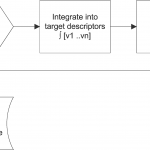What year will we return to the Moon? When will we have our first colony there? What are the corresponding dates for Mars?



What year will we return to the Moon? When will we have our first colony there? What are the corresponding dates for Mars?

Some cultures and many corporations have relinquished non-financial objectives to the sacred bottom line. Yet there are values beyond profit that tend to dominate our satisfaction as humans. It would be nice if some of these could become the measure of corporate return-on-investment, or the benefits of a given country.

National security issues arise when IoT reporting reveals information about troop movements and locations.

I have an expectation that machine consciousness will emerge unexpected, unsought, and perhaps undetected.

In “Finding the Wonder Woman Within,” values like courage, wonder, equality, grace, and power are addressed, often in very powerful ways.

The accumulation of data points for every person on earth continues at an amazing rate, and from an amazing diversity… Read More

Zuckerberg’s acknowledgement of the need to address issues related to election influence, “fake news,” and social media addiction is a significant step.

The ability to grow animal muscle from a few cells into meat for the kitchen is a significant technological advance. The book Clean Meat proposes that beef and other meat be lab-grown.

The Wall Street Journal points out that China has collected 54 million DNA records, and the U.S. FBI holds 13… Read More

The Wall Street Journal reports that “Facebook Concedes to Effects on Health.” The social media health impact acknowledged is related… Read More
It is delightful when high profile leaders of high tech companies present the case for positive social benefit

I’m still looking for a Word file containing the 1995 family history I published. When I find this, it will… Read More

It can be easy to explore the dark side of technology while not highlighting the benefits. But over the past… Read More

Web artificial intelligence (AI) evolution is driven, in part, by the evolution of the web. Daniel Dennett, in his recent… Read More

By web evolution I’m not talking Internet 4.0, I’m talking Darwinian survival. In the Darwinian model, evolution requires three things:… Read More
Where did the privacy slippery slope begin? Or perhaps asking the question with more focus, when did we start trading… Read More

We may be passing a tipping point in the area of individualized marketing/advertising. This has surfaced as the U.S. Federal… Read More

A Guest Blog Post from: Victoria A. Hailey, CMC & Katherine Bennett, (standards development leaders in IEEE). On 28 September 2017,… Read More

Recent research indicates that pollution (air, water, …) is a major killer on a global basis. That pollution kills is… Read More

Periodically, often after a unconscionable massacre such as Las Vegas or Orlando, the United States reviews the balance between the… Read More